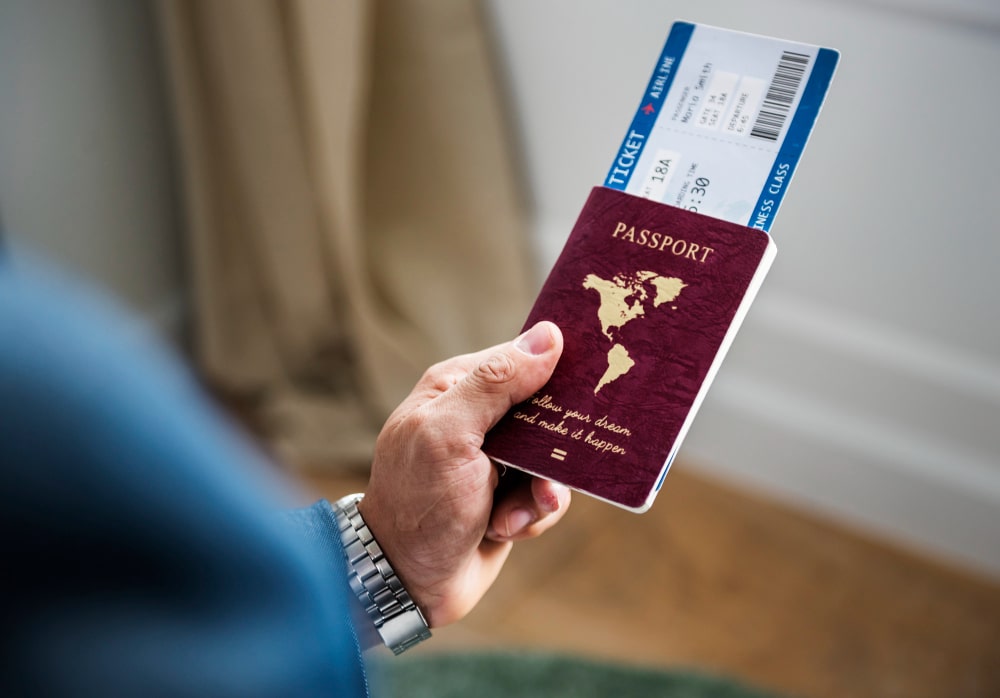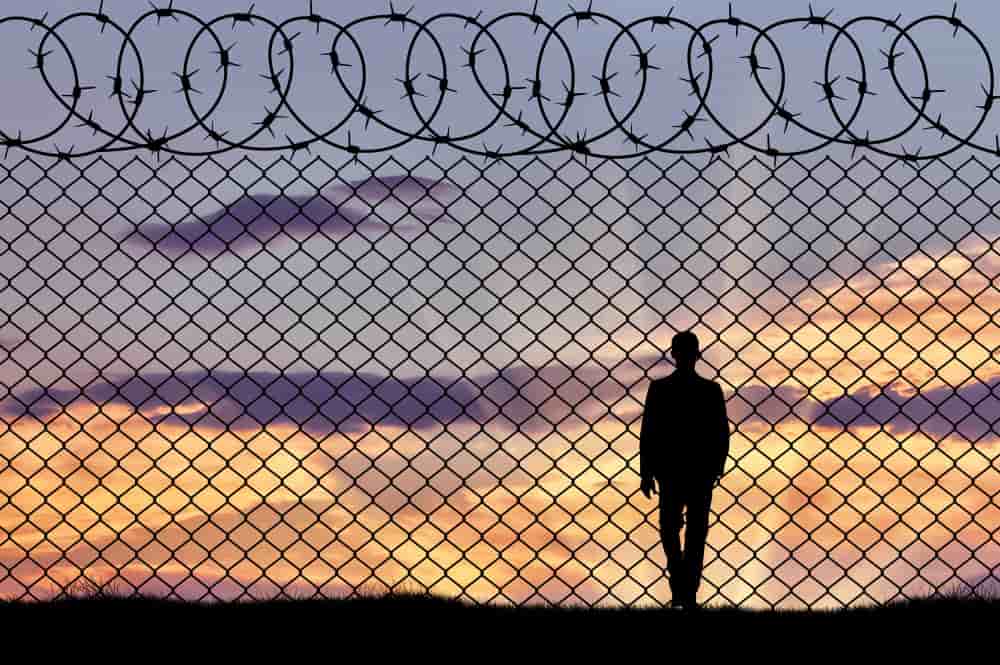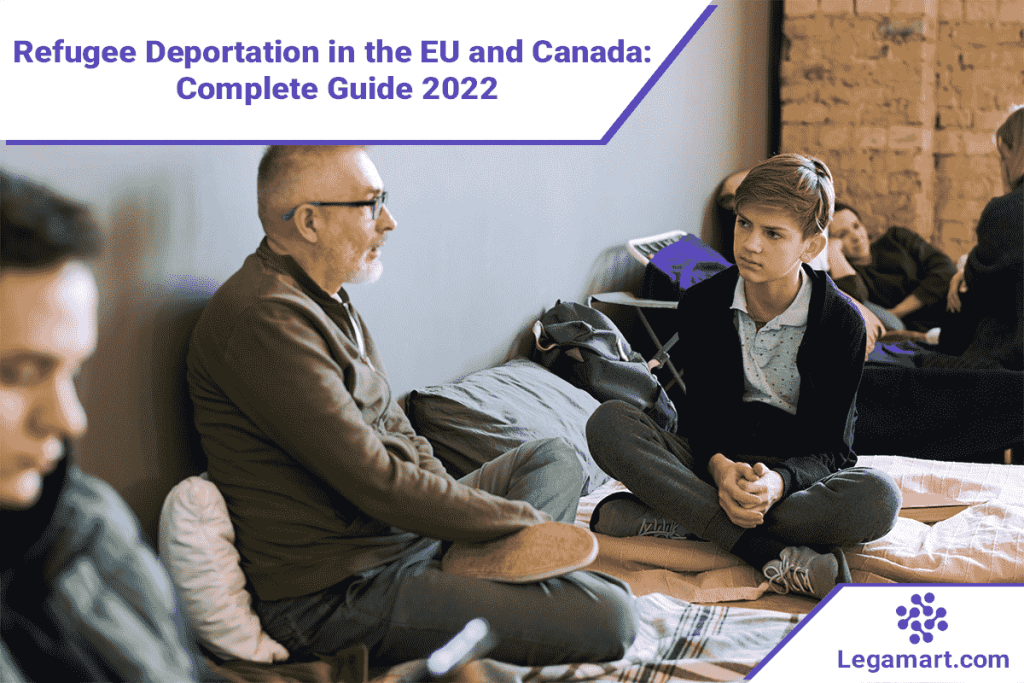Introduction
Deportation, as a concept and as a policy, embodies a contradictory concept. Additionally, it plays a crucial role in a liberal democracy in two ways. First, democracy has historically been linked to state sovereignty, which is the ability to control borders. Second, policy in a democracy must reflect the aggregated preferences of its citizens to some extent. The threat of deportation is a natural source of social, political, and legal conflict for those who have overstayed their visas, applied for asylum, or entered a state illegally.
Refugees Deportation from Canada: Deportation Cases and Reasons – Legamart
It is critical to distinguish between immigrant and refugee situations from the start. The most common motivation for immigrants to migrate is to improve their economic situation. In contrast, refugee migration involves the involuntary and coerced relocation of individuals.
Refugee deportation in the EU remain contentious issues in the international community and among EU member states. It is also one of the most pressing issues that the European Union Commission urges member countries to address by developing effective and efficient immigration management regulations to strengthen laws related to Refugee deportation in the EU. Furthermore, it is argued that migration issues have become prominent on the political stage, particularly since the Cold War’s end. This article will enunciate the perspectives on Refugee deportation in the EU and Canada and how the deportation mechanism is a significant obstacle to progressive legislation.

European Union Perspective
The European Union (EU) enacted steps in 2015 to address the perceived “refugee crisis” Among these was the European Commission’s development of the European agenda on deportation cases in the EU in May 2015, which included a plan to combat ‘irregular’ migration into Europe, as well as a specific return strategy known as the EU Action Plan on Return in September 2015. Such plans were the first step for having a robust way of handling refugee deportation in the EU. Such steps are necessary for a change in thought process as well as legislative evolution.
The number of deportations cases in the EU is engaged in some way, whether by legislation, policy, finance, or operational activity, has increased dramatically over the previous two decades, especially rapidly in recent years. According to the journalists’ collaboration, at least €11.3 billion has been spent on refugee deportation in EU since 2000.
The ‘Returns Directive’ governs the legal basis for forcefully removing persons from the EU in the central part. Despite significant opposition from civil society organizations and citizens, this entered into force in 2008 and established “common standards and procedures to be applied in the Member States for returning illegally staying third-country nationals.”
Changes to the Directive are under negotiation. The goal is to expedite the refugee deportation in the EU of more significant number of people. Individual rights are being eliminated or reduced as a method of accomplishing this.
Mechanism for Refugee Deportation in the EU

Since its inception, Frontex has been increasingly important in coordinating and organizing refugee deportations in the EU. In 2006, the organization oversaw one Joint Return Operation (JRO) that relocated eight persons from Austria, France, and Poland to Armenia and Georgia.
Frontex has long been the target of criticism, particularly from social movements and civil society organizations who have followed the agency’s operations and activities and criticized its role in the creation of ‘Fortress Europe.’ Concerns have frequently centered on the agency’s legal and political responsibility (or lack thereof) for suspected human rights breaches. It is also clear that the agency has regularly pushed to expand its position beyond the scope of current legislative authority.
Frontex is not in charge of deciding on refugee deportation in the EU. The laws regulating the agency and its advertising material emphasize that it cannot engage in the merits of return decisions and that its work must respect fundamental rights, EU law, and international law.
Issues Related to Refugee Deportation in the EU
Human rights abuses have been documented in connection with or during refugee deportation in the EU. Violations have occurred during expulsion operations managed by Frontex. They include the use of racial profiling to fill charter aircraft; physical mistreatment of deportees by escorts; the failure of national authorities to keep up-to-date records on appeals by those scheduled to be deported or to provide individuals with the opportunity to seek asylum; and the enforcement of removal orders handed down through weak or inaccurate decision-making systems.
Furthermore, due to significant differences in the asylum determination processes of various EU member states, persons of the same nationality have radically varied chances of gaining international protection in the EU, depending on the state in which they apply. The problem has been going on for years; in Greece, recognition rates in first-instance hearings dropped as low as 0.04% in 2010.
In 2019, the UN High Commissioner for Refugees condemned Hungarian officials for granting two families from Afghanistan the option of entering Serbia or being airlifted out. The UNHCR advised Frontex to “refrain from assisting Hungary” in enforcing return decisions that violate international or EU law. It is clear that deportation laws in the EU need robust growth, and at the moment, deportation cases in the EU are on the rise because of a lack of such growth.
Canadian Perspective

Over the previous half-century, Canada has earned a reputation for accepting immigrants and appreciating multiculturalism. Foreign-born persons account for around one-fifth of the Canadian population, one of the highest proportions among industrialized Western countries. Immigrants have assisted the country in combating aging demographics and driving economic growth. Accordingly, the rate of refugee deportation in Canada remained in check. There remain very few reasons for depuration in Canada. However, this does not mean that the picture is perfect.
In 1971, the government expressed its support for cultural diversity, and in 1976, legislation codified that commitment. Immigration targets were developed jointly by federal and provincial officials, and immigrants served as tools for achieving cultural, economic, and social goals. Immigration has traditionally played an essential role in the Canadian economy, supplying a relatively young workforce.
Mechanism for Refugee Deportation in Canada
The Anti-Terrorism Act of 2001, as amended in 2013, provided police with authority to detain persons suspected of having ties to terrorism for up to 72 hours without a formal arrest. They also established investigative judicial hearings, or secret court processes, to investigate potential terrorist operations. Although these laws can be used against immigrants, perhaps leading to refugees’ deportation in Canada, they can also be used against any Canadians, immigrants or not.
Issues Related to Refugee Deportation in Canada

Canada does not always satisfy its international duties under the non-refoulment principle. Like having unwarranted reasons for deportation in Canada. It prevents deporting people to countries where they face persecution or a significant danger of torture or other forms of abuse. The efficiency of domestic remedies available to non-citizens facing refugee deportation in Canada has a varied adherence to the recommendations of the Human Rights Council.
The CBSA’s powers at the front end of RSD render the refugee system less balanced and equitable than before the 2012 refugee reform. It is obvious in the procedural unfairness and inefficiency associated with the flood of security-related data. In the context of post-9/11 securitization related to gathering, sharing, and using personal information, the 2012 change raises concerns about increased substantive rights abuses. Among these transgressions is the increased possibility of refugee deportation in Canada.
According to one study, despite the significant safeguards afforded to migrants, refugees, and other non-citizens in Canada. The reasons for deportation in Canada are sometimes candid. This demographic is in danger of facing refugee deportation cases in Canada. The extent of persecution or hardship violates Canada’s international human rights commitments. Furthermore, certain key concepts emphasized in UN resolutions encourage Canadian authorities to strengthen compliance with these principles and, more broadly, the situation of non-citizens.
Conclusion
The author analyzed current activities in the first half that attempt to extend the involvement of EU institutions and agencies in administering and enforcing deportation cases in the EU. Individuals supporting these measures tell a simple story: hardly even half of those issued a deportation order get deported. For the EU and its member states to maintain their “credibility,” that figure needs to rise.
Regarding refugee deportation cases in Canada, the UN committees have demonstrated a remarkable ability to critically assess and debate national authorities’ conclusions and reasoning. They have held Canada accountable for failing to meet its human rights duties. The United Nations committees play an essential role in the protection of non-citizens. The conclusions of these panels must be taken seriously by Canada.
The research points out there is a need for holding the agencies responsible for the use of their expanded powers would thus have to be more comprehensive, encompassing solutions other than legal cases.
These are seen first-hand when it comes to refugees deportation in Canada. Pursuing alternative forms of responsibility should not be viewed as a replacement for formal legal and political accountability but rather as a method of securing its introduction and enforcement.
Whether you are an immigrant or a citizen, facing deportation can be one of the worst experiences of your life. If you are facing deportation or are about to face it, it is best to consult a skilled immigration lawyer. You can find some of the best immigration lawyers from around the world at legamart and start resolving your questions right away.




